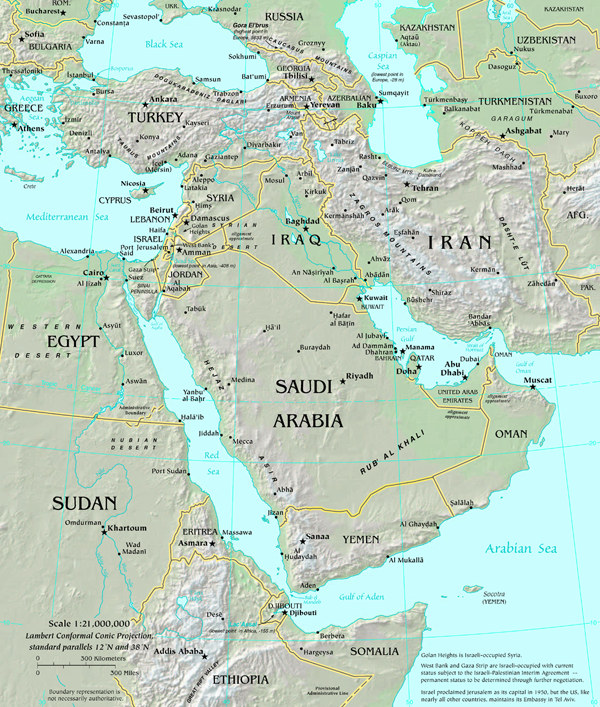 Further violations by Armenia were reported on January 22nd with Armenian armed forces launching attacks on Azeri positions near Yusifjanly village of Aghdam, Gervend village and two other locations in Fizuli and Khojavend. Only two days later more attacks were reported to have been launched on Sarijaly village of Aghdam, Gorgan village, and a location in Fizuli.
Further violations by Armenia were reported on January 22nd with Armenian armed forces launching attacks on Azeri positions near Yusifjanly village of Aghdam, Gervend village and two other locations in Fizuli and Khojavend. Only two days later more attacks were reported to have been launched on Sarijaly village of Aghdam, Gorgan village, and a location in Fizuli.This situation in Nagorno-Karabakh is the most complicated and volatile in the region. With Armenia having a collective defense agreement with Russia. On the other side are Turkey and Azerbaijan presently both allies of the United States. While Georgia's role in diverting Caspian gas from Russia was noted during the conflict between Russia and Georgia, Azerbaijan plays the even more crucial role of being a natural gas producer and major port for natural gas from Kazakhstan and Turkmenistan two nations the European Union has sought to tap as a way of reducing its dependence on Russia.
More troubling is that this conflict has been the apparent subject of a U.S. military exercise involving the deployment of U.S. troops into Azerbaijan. While no threat was specified it specifically referenced the Korean Way as a model with a conflict between two nations risking intervention by a third power with U.S. forces having to move in to prevent of possible fight those forces. The theoretical deployment involved troops stationed near Azeri held parts of Nagorno-Karabakh and the movement of troops around Baku to defend against external threats.
While the violations appear minor the risk is that if they continue Azerbaijan's government, eager to retake Nagorno-Karabakh, will initiate broader hostilities. If that occurs the situation will likely lead to Russian intervention of threat of intervention, especially if Azerbaijan has success against forces in Nagorno-Karabakh to the point of positioning for attack on Armenia itself. The relatively meager response by U.S. forces could encourage President Obama to send troops into Azerbaijan to ward off any Russian response. This would also include a condition on the part of Azerbaijan that the offensive not lead to any attack on Armenia. While such a response would have been more likely under a McCain administration Obama could view such an operation as a way of flexing his muscle and legitimizing himself in the international community. Indeed, it may very well be the crisis Joe Biden mentioned as testing Obama in his first months in office as it would likely be an unpopular move, though serving to demonstrate his strong hand on foreign affairs.
